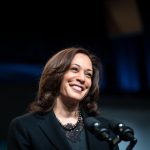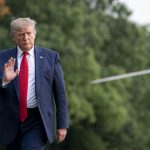The World Trade Organization (WTO) lowered its projections for trade growth in 2023 by more than two-thirds on Wednesday due to high inflation, energy crises, conflict in Europe, and historically tight monetary policy from developed nations.
While these reasons hit Europe, the U.S., and China differently, all are projected to have lowered import demand, the international trade regulator reported. This drop in developed market demand is predicted to reduce trade volume growth from 3.4% to 1.0%.
“The global economy faces a multi-pronged crisis,” said WTO Director-General Ngozi Okonjo-Iweala, according to The Wall Street Journal. “The picture for 2023 has darkened considerably.”
The just-released @wto report confirms what many other data readings have been suggesting:
The global #economy is slowing at a faster rate than many expected#WTO's downward revision for projected 2023 trade growth is particularly notable:
1.0% increase compared to the prior 3.4% pic.twitter.com/qxqLnQQNaz— Mohamed A. El-Erian (@elerianm) October 5, 2022
WTO's forecast for global GDP growth in 2023 plummeted by one-third, from 3.3% to 2.3%. The WTO says its April predictions were "overly optimistic," especially about the Russo-Ukrainian War's long-term consequences.
Trade growth might reach 4.6% if forecasters are wrong. If disadvantages occur, trade volumes might fall 2.8%, the WTO reported.
There is some hope that slowdowns in trade would help lower inflation, since declining freight costs put downward pressure on supply chains, the WSJ noted. Inflation in the supply chain was highlighted in September by FedEx's $800 million estimated profit blow, Amazon's warehouse closures, and merchants keeping surplus inventory in cargo trucks to conserve warehouse space.
The Federal Reserve has been consistent in saying the fight against inflation will continue through 2023, a position Fed Governor Philip Jefferson repeated on Wednesday. There is a potential inflationary pressures have peaked, as a decrease in global demand drives down prices, the WTO stated.
Okonjo-Iweala stated in a press statement “Policymakers are confronted with unenviable choices as they try to find an optimal balance among tackling inflation, maintaining full employment, and advancing important policy goals such as transitioning to clean energy.'' “Trade is a vital tool for enhancing the global supply of goods and services, as well as for lowering the cost of getting to net-zero carbon emissions.”
The preceding is a summary of an article that originally appeared on DAILY CALLER.




